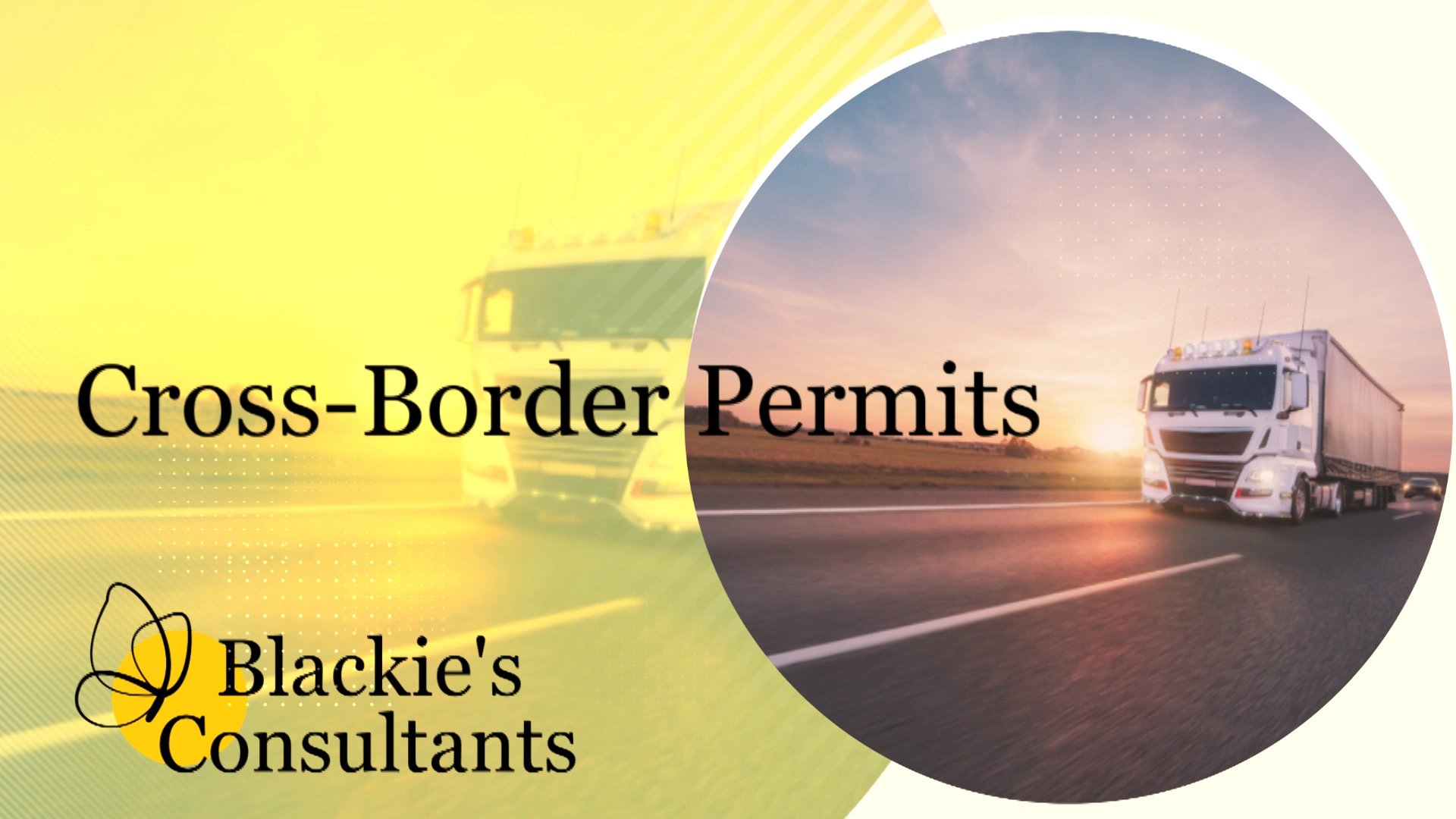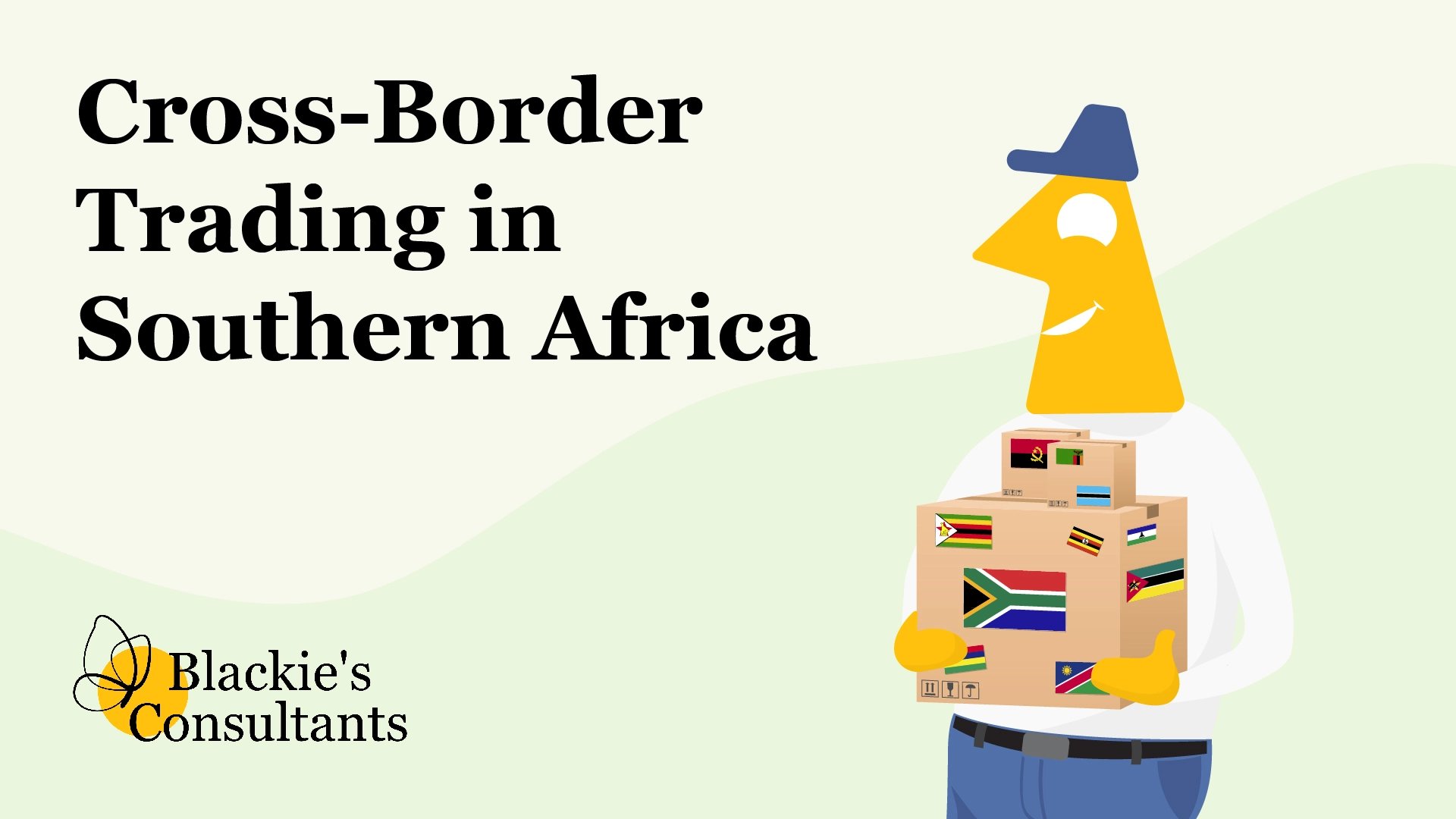If your business involves transporting goods across South African borders, it’s essential to ensure that you have a valid cross-border permit. Blackie’s Consultants specialises in supplying customs clearing services to companies that operate cross-border supply chains, specifically between South Africa, Namibia, Lesotho, Eswatini, and Botswana.
What are cross-border permits?
A cross-border permit can be seen as a traffic document. According to the Cross-Border Road Transport Act 4 of 1998, regulatory agencies grant exporters and transportation firms cross-border permits to operate a road transport business within South Africa and its SADC (Southern African Development Community) neighbors with specific restrictions or control of certain goods and movements.
When Do You Need A Cross-Border Permit?
If your company fits the following description, you must apply for a cross-border permit:
- Your vehicle, or the combination of vehicles, has a mass greater than 3,500kg; and
- You are crossing the border to convey goods for business purposes.
*Note: You must apply for a cross-border permit if you operate a vehicle with a foreign registration for business reasons within South Africa.
Cross-Border Permits Are Required To:
- Ensure a smoother cross-border movement of goods. The permits make it easier for businesses that carry goods, people, and tourists to move between SADC nations without being subjected to protracted waits at border crossings.
- To control the level of competition in the cross-border passenger transportation sector.
- To reduce administrative burdens on the cross-border road transportation sector.
- To expand market access and improve business possibilities for cross-border road freight transport companies.
The Products Permit
Products (Goods) permit: to traverse SADC borders with tangible goods sold for commercial purposes (This permit is needed whether the seller transports the goods, or a third party accepts payment to transport the goods).
Eight Fast Facts
- You can’t use a cross-border permit for multiple countries. You need one for each country where you drop off or collect goods.
- You don’t need a cross-border permit for every country passed through on the way to the final destination. You only need a permit for the country where goods are collected or dropped off. However, you do need to submit the outline of the route that you will be driving from and to when applying for the permit.
- A cross-border permit only covers some trucks or vehicles used for transportation. You need a separate permit for each vehicle you are using. Each vehicle must also have its valid roadworthy certificate. This needs to be submitted as part of the permit application process.
- You can save on import duty tax by applying for SADC certificates of origin when exporting to SADC countries.
- Apart from the SADC certificates, there are a few additional things to keep in mind like under which circumstances a VISA is required, proof of vaccinations (as per country requirement) must be presented, ZA sticker must be displayed, drivers must have a valid passport and driver’s licence.
- The following stipulations apply for the required vehicle registration papers:
a) A certified copy of the driver’s registration documents for the vehicle is required.
b) A letter of authorisation (a police-issued document) from the registered owner confirming that the driver has permission to operate the vehicle is required if the driver does not own the vehicle.
c) If the vehicle is still funded, the driver must also have the vehicle registration documents and a letter of authorisation from the bank, which specifies the dates of the trip.
- A carrier registration must submit a manifest (a list of all the things in the transport vehicle) to Customs. The Electronic Data Interchange allows for the submission of electronic manifests (EDI).
- All companies transporting bonded cargo must register as one of the following:
a) Transporter/Road Hauler (if the bond is in the client’s name) or
b) Remover of Goods in Bond (if the bond is in the business’ name).
(Because the import duties, excise duties, VAT, and other applicable customs fees have not yet been paid, the term ‘bonded cargo’ refers to imported or excise cargo that is still subject to customs control. These items are kept by Customs in bonded warehouses, usually at a border post or on a third-party premises).
Temporary Storage With Blackie’s Consultants
If you transport items across borders, temporary storage could be of the utmost importance. At our offices in Ladybrand, Maseru (on the South African side of the border), Maseru (in Lesotho), Caledonspoort (in Lesotho), Ficksburg (on the South African side of the border), and Wepener (near to the Van Rooyens Gate border), Blackie’s can assist clients with temporary storage.
This is just a brief overview of cross-border permits Speak to an expert at Blackie’s Consultants to ensure seamless cross-border trade.





